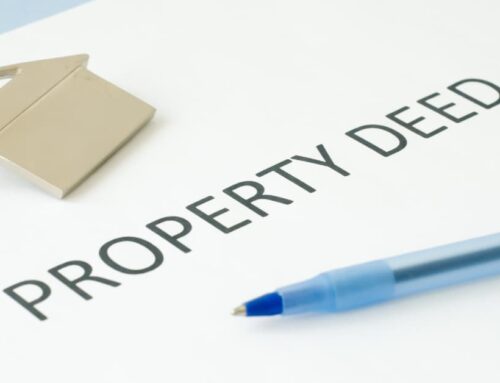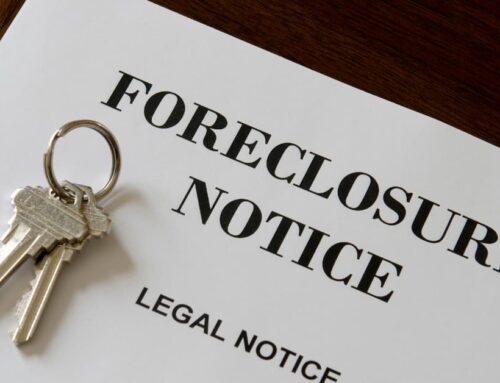For current or future property owners, real estate law can be complicated and difficult to navigate without expert help. Buying and selling property, whether commercial real estate or residential real estate, require a lot of legal paperwork and legal expertise. It’s important to be aware of the laws that govern real estate transactions in your area so you can avoid costly mistakes.
Different types of documents are used during real estate transactions. These include contracts, deeds, mortgages, title insurance policies, surveys, appraisals, and so on. Unfortunately, if you don’t know what questions to ask about these documents, they can easily become lost in the shuffle or not processed properly.
You should always consult with a licensed lawyer who has experience in real estate law to ensure everything goes smoothly. An experienced real estate attorney from a respected law firm will be able to answer your questions and provide valuable information and advice. The following are some of the most common questions that you need to ask your lawyer before hiring them to help you with any commercial or residential real estate transactions.
How much experience do you have?
Experience is an important factor to consider when choosing a real estate lawyer. A seasoned attorney will be familiar with all aspects of real estate law. This includes contract reviews, easements, zoning regulations, environmental concerns, etc. They should also have some experience in real estate litigation and be familiar with the local court system.
If you hire someone without any experience, they may not understand the specific nuances of the law and might not be able to anticipate or recognize issues. Therefore, when selecting a lawyer, it’s best to go with someone who has plenty of experience. The more years they’ve practiced real estate law, the better prepared they’ll be to help you through all aspects of your transaction.
What types of cases do you handle?
If you’re looking to purchase a new property, you’ll want to find someone specializing in real estate law. They will likely offer legal services covering all aspects of residential and commercial real estate transactions, including contract negotiations, mortgage approvals, inspections, closing procedures, etc.
A good attorney might give you advice based on their experience and connections. For example, a knowledgeable attorney will be familiar with local lending institutions, making it easier for you to obtain financing. They might recommend certain lenders or brokers if you need to get a loan.
Do you practice exclusively in real estate law?
Many attorneys offer services beyond just real estate law. For example, some handle divorces, criminal defense, wills, trusts, etc. To make sure that you hire the right person, it’s essential to ask whether they practice exclusively in real estate.
If not, which services outside of real estate law does their firm offer? This could be helpful if you are dealing with a complex matter such as divorce, which might require help with more than just selling a shared property. Lawyers who practice outside of real estate law often have more knowledge than those who only work within the field.
Do you practice out-of-state as well?
It’s imperative to choose a lawyer who practices in your state. For example, if you live in Texas, you don’t want to hire an attorney who only practices in New York. The same goes for any other state.
In addition to being licensed by your state, an attorney must be admitted to practice in every state where they wish to represent commercial and residential clients. This includes both federal courts and state courts.
Can I see your license?
When you’re hiring a lawyer, it’s important to check whether or not they are licensed. It doesn’t hurt to record their license number either. If you can’t find one online, call the state bar association (if applicable) and ask if they have a record of the attorney’s licensure.
Do you have insurance?
You should know what type of liability coverage your real estate lawyers offer. There are two main options: general liability and errors and omissions insurance.
General liability insurance covers damage caused by negligence, while errors and omissions insurance protects against claims stemming from mistakes made during the sale process. An attorney without these kinds of policies may leave you exposed to expensive legal fees and penalties.
How much of your practice is devoted to real estate?
Some attorneys spend most of their time focused on real estate law. Others may take on a few clients now and then. When choosing a lawyer, make sure they have enough experience to deal with all aspects of real estate law.
How many cases have you represented that were similar to mine?
It’s common for people to get overwhelmed by all the legal jargon surrounding real estate transactions. As a result, some people feel like they don’t understand what is going on until they hire a lawyer. By asking how many cases similar to yours they’ve handled before, you’ll determine whether they’re prepared to deal with your situation. It might be comforting to have an attorney that not only offers extensive real estate legal services, but has specifically worked on a case similar to yours and knows exactly what to do and expect.
What are your fee structure and billing process?
Before hiring any lawyer, make sure you understand how much your case will cost. There are a lot of factors that go into determining your bill, including the type of service you require and the amount of time the law firm will need to devote to it. The best way to find out your fees is to ask your potential lawyer directly.
Who will be involved in my case?
In most states, attorneys must disclose the names of the parties involved in a transaction. This means that you need to know the name of everyone involved in your case. The person you’re paying should also be listed so you can verify their identity.
If there is a dispute over ownership, you might also consider having a third party witness present when signing documents. This prevents them from changing the terms later on.
What is the likely outcome in my case?
Lawyers can’t predict future events. But they can estimate the likelihood of various outcomes based on past experiences. In addition, they can advise you on how to minimize the chances of things going wrong.
What challenges might appear with the case?
The challenges you will face in your case depend on several factors, including the complexity of the issues at hand. It is also possible that certain situations will arise that you didn’t expect. Asking your lawyer about these issues will help you plan to avoid being caught off guard.
Are there other ways to solve my legal problems?
Sometimes it makes sense to look beyond traditional methods of resolving disputes. For example, mediation or arbitration can be useful alternatives to complex real estate litigation. These processes involve less paperwork and lower costs than court proceedings. They are also often faster and easier to resolve.
Can I see a sample of your previous work?
Many attorneys use samples of past work to demonstrate their skills. In addition, they may also share their rates and fee structures. Make sure you understand the terms of your agreement before signing anything.
Can I contact other clients?
There are lawyers who charge extra to contact former clients. Others may refuse to discuss client matters unless you pay them first. Therefore, it’s crucial to find any reviews left by former clients and to ask amongst your friends and acquaintances to see if they’ve worked with the specific lawyer before and would again.
What can you offer that others can’t?
You should consider the value of your case against the lawyer’s expertise. For example, some lawyers specialize in one area of law, while others focus on multiple real estate law services. They may also have special training or education that sets them apart from other lawyers.
How will we communicate?
It is common for lawyers to prefer email or text messages over phone calls. Others prefer face-to-face meetings. Regardless of which method works best for you and your lawyer, it’s essential to agree upon a system early on so there aren’t any surprises later.
Will I have access to my files?
Most law firm keep copies of every document related to your case. They also provide regular updates about the status of your file. You should receive a copy of everything from your old lawyer if you decide to switch lawyers.
Are you willing to travel to meet me?
You can save money by meeting with an attorney at your office instead of traveling to see them. However, this isn’t always possible. Some lawyers may insist on meeting you at their own offices. And in this day and age, some lawyers are meeting clients via video conference online. Be sure to ask questions about where you’ll be meeting beforehand and figure out if it will work for you.
Real estate law is a complicated and sometimes confusing area of law. If you are buying or selling real property, it’s vital to know what questions to ask your lawyer about this complex field.
The following questions are intended to help you understand the law and how it affects your real estate transaction. We hope to provide a general overview of what is involved in buying or selling property. If you have any other questions that aren’t answered here, please get in touch with us at Kelly Legal Group for more information about our real estate legal services or call (512) 505-0053.

When Should You Hire a Real Estate Attorney?
Many people think they don’t need an attorney when they buy or sell a home. Unfortunately, this couldn’t be further from the truth! Multiple legal issues arise during the process of buying or selling a home.
There are several instances where hiring an experienced attorney could make a big difference. Here are some common situations where you might want to hire an attorney:
Distressed Property
A property becomes distressed if it is about to be foreclosed on, already owned by the bank, or otherwise lost its value. Selling these properties can be difficult because buyers usually don’t want to risk purchasing a property that could lose value.
A real estate attorney can help negotiate a fair price for the property. They can also advise you on whether you should list the property as a short sale or auction it off.
Protection
Real estate attorneys offer protection for both buyers and sellers. Buyers can protect themselves from fraud by hiring a lawyer to review documents before closing. Sellers can ensure that all parties involved in the transaction follow through on their obligations.
Lawyers also help draft contracts that cover issues such as how much the seller must disclose about the property, how long the buyer must wait to move into the home, and what happens if something goes wrong during the transaction.
Outside Buyer
An out-of-state buyer may not know precisely what they need to do to close a purchase. For instance, they might not realize that they need to obtain a mortgage loan from a bank licensed in their state.
An experienced attorney can help you navigate the process of purchasing a house in another state.
Choosing the Right Real Estate Lawyer
Hiring the right real estate attorney is critical to ensuring that your interests are protected throughout the entire transaction. It’s also important to find someone who will work closely with you to get the most out of your experience.
At Kelly Legal Group, we have over a decade of experience helping clients buy and sell homes. We have helped hundreds of residential real estate owners achieve successful outcomes in their real estate transactions. Our Austin real estate lawyers have extensive knowledge of the laws pertaining to residential real estate law and commercial real estate law.
We can answer your questions and guide you through the process of buying, selling, or renting a new property. To learn more about our real estate law services, please call (512) 505-0053 today or contact us online to schedule a free consultation.






